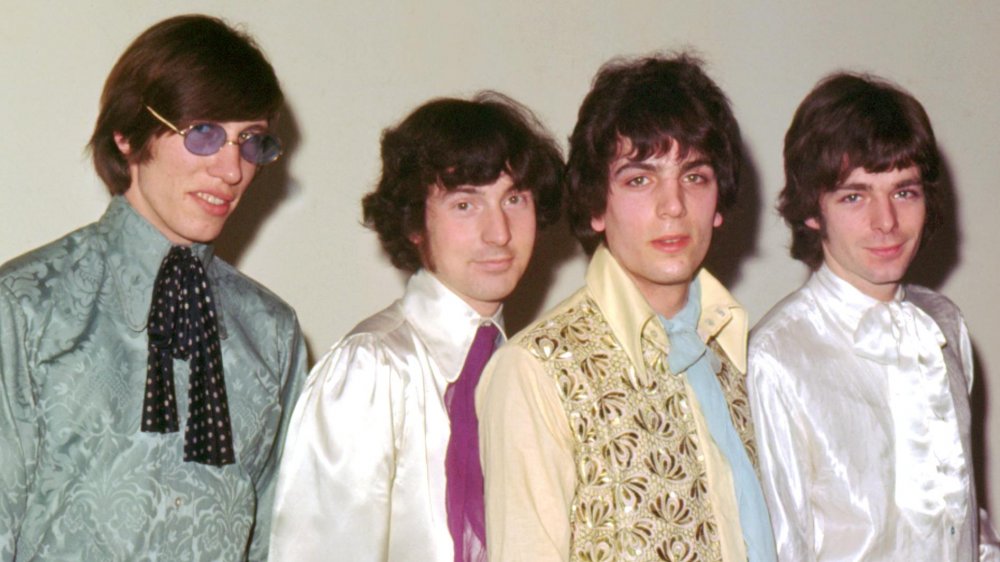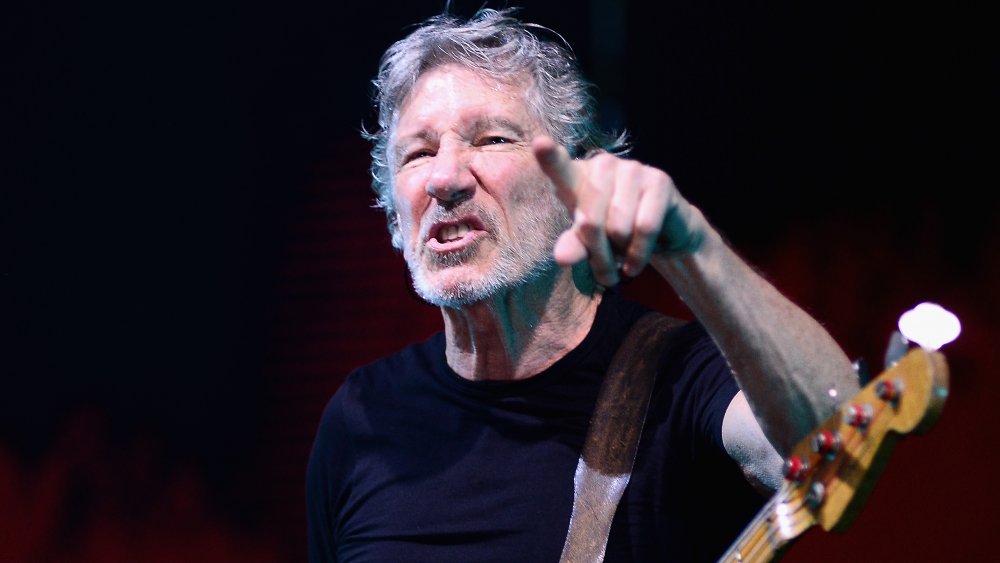The Real Reason Roger Waters Tried To Sue Pink Floyd
Pink Floyd became Pink Floyd because another band (it turned out) was already using their chosen name, The Tea Set. (The Warlocks had a similar conundrum, which drove them, via fate or something else, to become The Grateful Dead. You'd think there were more than enough band names to go around. Apparently not. It was the '60s, after all.)
Originally consisting of songwriter Syd Barrett on guitar, Nick Mason on drums, Richard Wright on keyboards, and Roger Waters on bass, Pink Floyd broke into the broader consciousness with a minor hit in 1965, then began to turn rock and roll on its head. As Biography tells the story, just about the time the band started to soar, however, Barrett suffered what seems to have been some kind of psychiatric break, perhaps as a result of his extensive LSD use. The lads got together and Barrett was out, replaced by guitarist David Gilmour.
Waters thought Pink Floyd was over; others weren't convinced
And so they continued for a time — quite a long time, actually. In 1985, founding member Roger Waters came to the conclusion that he had a viable solo career ahead of him, if he just made the leap. And leap he did, breaking from Pink Floyd and considering the band extinguished. The two remaining musicians, Gilmour and Mason, begged to disagree. Waters decided to help them see things his way by suing them over use of the name Pink Floyd. The 1986 lawsuit sought to prevent them from performing or recording as Pink Floyd, as Rolling Stone reported. Things with the former mates had been testy for a time anyway, and a legal brouhaha couldn't have helped matters any.
The legal battle didn't last all that long, as legal battles go. Perhaps to the disappointment of now-out-of-work attorneys, the three of them got together on Gilmour's houseboat on Christmas Eve 1987 and finalized an out-of-court settlement. The reconciliation extended further, to a reunion performance in 2005.
Waters maintained that his break with the group was the right thing to do — he wanted to express his ideas "unfettered" — even if the lawsuit wasn't. In 2013 he told the BBC, "I was wrong! Of course I was. Who cares?"

